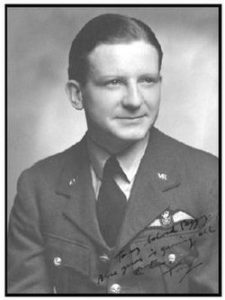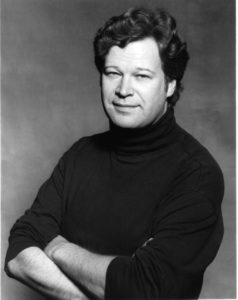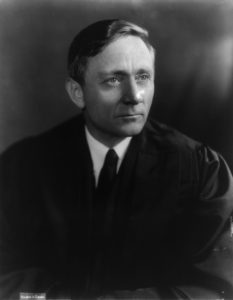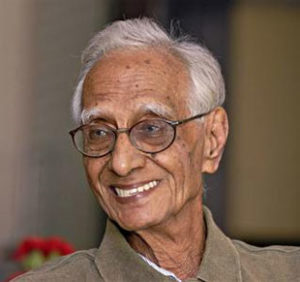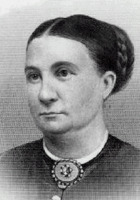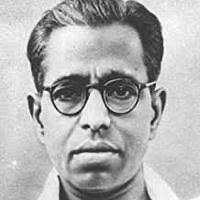We have decided to create the most comprehensive English Summary that will help students with learning and understanding.
Memories of Childhood Summary in English by Zitkala-Sa, Bama
Memories of Childhood by Zitkala-Sa, Bama About the Author
Born Gertrude Simmons Bonnin, (Zitkala-Sa) (22 February 1876 – 26 January 1938) was a Sioux writer, editor, musician, teacher and political activist. She was the co-founder of the National Council of American Indians in 1926. Her articles were published in the ‘Atlantic Monthly’ from 1900 to 1902 and in ‘Harper’s Monthly’. Most of her work is focused on tensions between tradition and assimilation and literature and politics. She was also an active member of the society of ‘American Indians which published the ‘American Indian’ Magazine. She worked for the recognition of native American culture and traditions but at the same time advocated US citizenship rights for American Indians to bring them into the mainstream.
Bama (Born: 1958-) is a Tamil novelist. Her autobiographical novel Karukku (1992) brought her fame. After this she wrote two novels Sangati and Vanmam along with two collections of short stories. Kusumbukkaran and Oru Tattvum Erumaiyum. She was born in a Roman Catholic family in Madras.
Most of her novels focus on caste and gender discrimination and that prevailing in Christians and Hindus. Her works embody the Dalit feminism and celebrate the inner strength of the subaltern woman.
| Author Name | Zitkala-Sa |
| Born | 22 February 1876, Yankton Reservation, South Dakota, United States |
| Died | 26 January 1938, Washington, D.C., United States |
| Spouse(s) | Raymond Bonnin |
| Movies and TV shows | New England Conservatory of Music (1897–1899), Earlham College (1897) |
| Nationality | American |
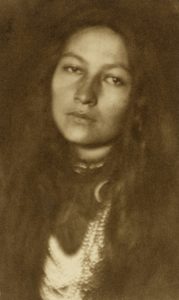
Memories of Childhood Introduction to the Chapter
The “Memories of Childhood”, written by Zitkala-Sa and Bama has extracts taken from the writings of two different female writers from the marginalised communities. In both these autobiographical extracts, the writers narrate the painful experiences of their childhood when they were subjected to humiliation merely as they belonged to backward tribes or communities. The former is a victim of racial discrimination, whereas the latter is a victim of caste discrimination.
The first part titled ‘The Cutting of My Long Hair’ is by the extraordinarily talented and educated Native American writer, Gertrude Simmons Bonnin (pen name Zitkala-Sa). Her works criticised the dogma and the evils of oppression towards the Native American culture and women. The second part ‘Vie too are Human Beings’ is written by Bama, a Tamil Dalit woman from a Roman Catholic family. This is an excerpt from her 1992 autobiography, ‘Karukku’. This excerpt relates her first experience with untouchability.
Memories of Childhood Theme
The chapter, ‘Memories of Childhood’ explores the theme of prejudices and humiliation faced by the marginalised communities. The chapter tells us how the two brave girls stood up for their own and community rights, using their talent and education.
Memories of Childhood Summary in English
The Cutting of My Long Hair – Zitkala-Sa
The first day in school was a bitter and cold day. The noise made by the breakfast bell, the clatter of the shoes and the constant murmuring voices in a foreign tongue annoy the author. She sees many girls dressed in clinging dresses with stiff shoes and shingled hair. She finds the breakfast ritual of doing things according to the bell, strange. She calls it eating by formula. More atrocities were to follow for the new girl.
Zitkala-Sa’s friend overhears a talk about cutting r the long hair of the new girls. For Zitkala-Sa, this was absolutely atrocious. She belonged to a Native American warrior tribe. Their tradition was to keep long and heavy hair. Only those warriors captured by the enemy had their hair shingled. Short hair was worn by mourners, and shingled hair by cowards. Zitkala-Sa tries to rebel by hiding herself, but finally gets caught. Her voluble protests bear no fruit and her hair is also shingled forcibly on the very first day. This extract describes the narrator’s agony. She lost her beautiful long hair. Nobody provided comforit to her. Other children in the school had shingled hair. So she felt herself as one of the many animals driven by a herder.
We too are Human Beings—Bama
Bama was an innocent child living in a village. She had never heard of the word untouchability during her childhood. Certain small incidents of her life made her feel that she was born in the marginalised caste. She was a happy peppy girl. She loved the short-but- long walk from her school to her home. The plethora of beauty that she experienced on the way back from school made her very happy.
The performing monkey, the snake charmer, the Maariyaata temple, the pongal offerings being cooked in front of the temple—she could just go on and on looking at the beautiful sights. Once when she was in the class 3, while going home, she saw her people working hard for their landlords. In spite of their hard work, the landlords humiliated them.
Bama further narrates how an elder of their street had to act in a humiliating manner just because he belonged to the Dalit community. The village landlord sent the elderly man to get some vadai for him. The man held the packet by its string. He was not supposed to touch the packet as his touch would pollute the vadai. That is why, he had to carry the packet by its string. When Bama’s elder brother told her all the reasons behind this, her mind filled with revolt. She was enraged thinking why her elders work so hard for those people who despised them so much.
She wanted her people to stop paying undue respect and reverence to the upper caste people. Her brother told her that if they study hard and progress in their lives, it would help them in throwing away the indignities. Education is their weapon with which they fight back the society. Bama did the same and got many friends in her life. Education gave her double¬sided sword to fight very sharply against the unjustified caste system.
Memories of Childhood Summary Questions and Answers
Question 1.
How was Zitkala-Sa different from the other Native American students?
Answer:
Zitkala-Sa was a Native American girl. She had great love for her tradition and culture. She was proud of her beliefs. She held these beliefs close to her heart and felt hurt when the rest of the girls followed the foreign culture without any hesitation.
Question 2.
Mention any two reasons because of which it would take thirty minutes to an hour for Bama to reach home? (Memories of Childhood—We too are human beings)
OR
What would take ‘Bama’ half an hour to cover ten minutes distance?
Answer:
There were many reasons why Bama took long to reach home. She would watch all the fun and games going on the road, she would also look at the shops and bazaars; she loved looking at the performing monkey and the snake charmers. The various food stalls, the street plays, the political meetings, the Maariyaata temple, the pongal offerings being cooked in front of the temple—she could just go on and on looking at the beautiful sights.
Question 3.
Why was the girl tied to a chair in Memories of Childhood?
Answer:
The girl, Zitkala-Sa was refusing to accept the school’s decision to shingle the hair of all girls. According to her traditions and customs, a girl’s long hair was shingled only when captured by enemy, in mourning or for cowards. She felt insulted and hid herself. She was finally caught and forcefully tied to a chair and her long hair was chopped off.
Question 4.
Why did Zitkala-Sa not want her hair to be cut short?
Answer:
Zitkala-Sa belonged to a Native American warrior tribe. Their tradition was to keep long and heavy hair. Only those warriors, captured by the enemy, had their hair shingled. Short hair was worn by mourners, and shingled hair by cowards. Therefore, for her, this was absolutely atrocious.
Question 5.
When did Bama first come to know of the social discrimination faced by the people of her community?
Answer:
Bama came to know of the social discrimination when she was in class 3. On her way back from school, she saw an elder from her community carrying a small packet of eatables by a string without touching it. She found it very funny that a huge elderly man was carrying a small packet so strangely. Later on, she discovers from her brother that the real reason was that the landlords were of a higher class and they thought that their food would get polluted, if touched by people from her caste.
Question 6.
How did Zitkala-Sa try to prevent the shingling of her hair?
OR
Describe how Zitkala-Sa tried in vain to save her hair from being cut. Why did she want to save her hair?
Answer:
Zitkala-Sa went upstairs and crawled under a bed to hide herself. But to her plight, she was caught and brought downstairs and tied to a chair. Though she made many voluble protests, they were not fruitful. She cried, shook her head all the while but could not avoid her hair from being shingled.
Zitkala-Sa belonged to a Native American warrior tribe. Their tradition was to keep long and heavy hair. Only those warriors captured by the enemy had their hair shingled. Short hair was worn by mourners, and shingled hair by cowards. Therefore, for her, this was absolutely atrocious.
Question 7.
What are the similarities in the lives of Bama and Zitkala-Sa though they belong to different cultures?
OR
What kind of discrimination did Bama and Zitkala-Sa experience? How did they respond to their respective situations?
Answer:
Both Bama and Zitkala-Sa are victims of racial discrimination. Zitkala-Sa was a Native American and their community was treated poorly. The white skinned settlers of Europe considered local tribes as inferior. Similarly, Bama was a Dalit and was treated badly by the higher caste people. Both of them have painful experiences as they were subjected to humiliation merely as they belonged to backward tribes or communities. Both of them protest in their own ways and try their best to overcome all these humiliations. Zitkala-Sa fights against the shingling of hair by hiding, voicing out her protests aloud. Bama tries to study hard and be successful.
Question 8.
How was Zitkala-Sa’s hair cut?
Answer:
Zitkala-Sa’s hair was cut even after her resistance and strong opposition. It was all in vain since her stiff resistance was met with equally stiff efforts. She was tied to a chair and amidst her loud disapproval, her hair was cut.
Question 9.
Why did the landlord’s man ask Bama’s brother, on which street he lived? What was the significance?
Answer:
The street on which a person lived signified the caste of a person. Each street was dominated by a particular caste.
Question 10.
What did Zitkala-Sa feel when her long hair was cut?
Answer:
Zitkala-Sa was terribly shocked. She was in tears. She cried for her mother. However, no one came to comfort or reason out with her.
